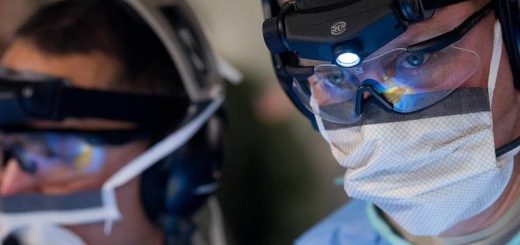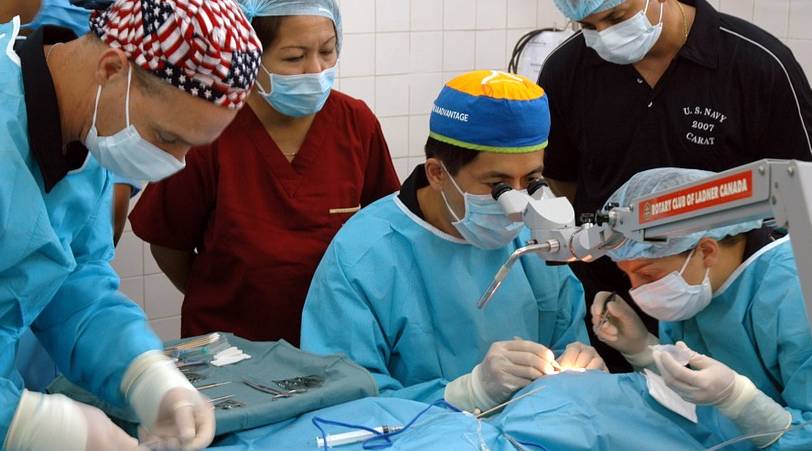Doctors – what do they do?

Becoming a doctor involves years of extensive education and training. Depending on whether you plan to work as a general physician or as another type of doctor, training can take between eleven and sixteen years. Most doctors complete at least four years of undergraduate school, followed by four years of medical school and then three-to-eight years of residency programs. Fellowships can last an additional one-to-three years.
You may have some questions about the process, such as: What is the difference between a D.O. and an M.D.? What topics do the MCAT cover? What should I study as an undergraduate to prepare for medical school? The following guide answers such questions, discusses the basics of the profession, and provides details needed to start a career path with confidence.

Doctors can choose to work in primary care or to specialize in a certain area, such as pediatrics or surgery. Regardless of the field, however, a doctor’s main responsibilities are to diagnose and treat ailments by examining patients, formulating a treatment plan and prescribing medication. It’s important that physicians keep detailed medical histories of their patients. They may also analyze test results or perform operations.
Doctors of all specializations often work long hours and can have hectic schedules. Even when not working, they may be on call.
Amazing jobs in medicine
Cytotechnologist
Job Description
Cytotechnologists employed by hospitals or other medical centers spend their days in the laboratory, analyzing patient biopsies. They use the most current imaging devices and methods to detect cell abnormalities or irreularities. They report their findings to the head of the lab and/or the patient’s overseeing physician.
While cytotechnologists must be self-sufficient, and able to work unaided, they do have to interact with other researchers and technologists in a public laboratory space. Patient interaction, however, is limited.
Education
A bachelor’s degree in Cytotechnology prepares a student for a career as a technologist. Though it may vary slightly between universities, the program emphasizes microbiology and laboratory practices.
If you’ve enjoyed your high school laboratory science classes, this might be a career for you.
Licensing/Certification
All cytotechnologists muss pass the ASC exam to be come certified, and the CT(ASCP) Cytotechnologist license is highly valued in the workplace. Some additional requirements may exist in your state, so check the local health board for more information.
Job Outlook: Excellent
The BLS does not provide data specific to cytotechnology, as it is a smaller and newer field. However, with a starting salary of £40,000 and technologists as a whole predicted to increase employment by nearly 30%, cytotechnology appears to be a solid job choice.
Nuclear Medicine Technologist
No, it’s not science fiction. Nuclear medicine is a one way doctors examine patients. They use radioactive materials and a special scanner to observe tissue function. A nuclear medicine technologist administers these tests and delivers the results to the overseeing physician.
Fast Facts
Minimum Degree Required: Associate’s
Top 3 Skills: Patient Interaction, Attention to Detail, Math and Science Skills
Average Starting Salary: £40,000
Job Description
The technologist works directly with patients before and during the imaging procedure. They must explain to the patient what is happening, and assure them of the procedure’s safety, if necessary. Then the technologist follows steps to protect the patient and him/herself from excess radiation. After assuring that the machines are working properly, the technologist prepares and administers the radioactive drugs to the patient. The technologist then takes detailed images and reports of the specified area(s), and reports to the patient’s physician.
This type of test is almost always scheduled in advance, so night and weekend hours are unusual.
Education
An associate’s degree in nuclear medicine technology will thoroughly prepare students to become working technologists. It is also possible to obtain an associate’s degree in a related field, such as biomedical technology or medical imaging, and then follow up with a certificate program (12 months or less) specific to nuclear medicine.
Its a good idea to study anatomy, chemistry, and advanced math in high school if you wish to become a nuclear medicine technologist.
Certification/Licensing
The requirements vary by state, so check your state’s health board for details.
Job Outlook: Fair
While growth is predicted to be average, about 19%, the median salary for nuclear medicine technologists is well above the national standard, at £55,000 per year.
Want to know more about interesting medical jobs? Visit Paragona to find out more! Brilliant jobs, great offers and amazing opportunities for doctors in Europe. – www.Paragona.com


